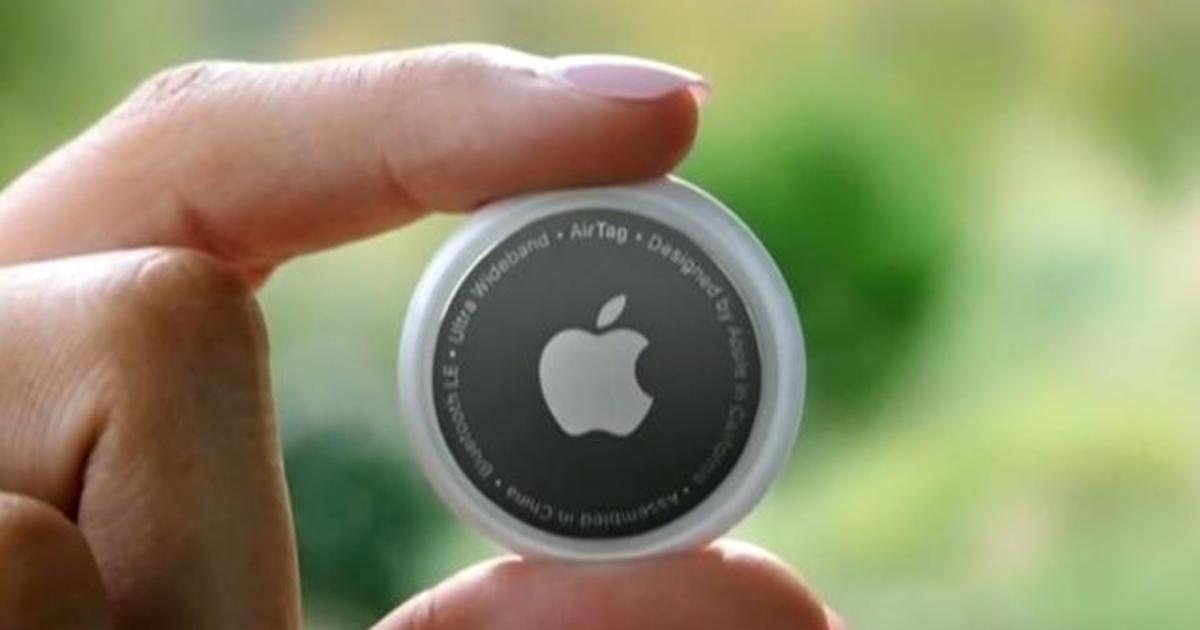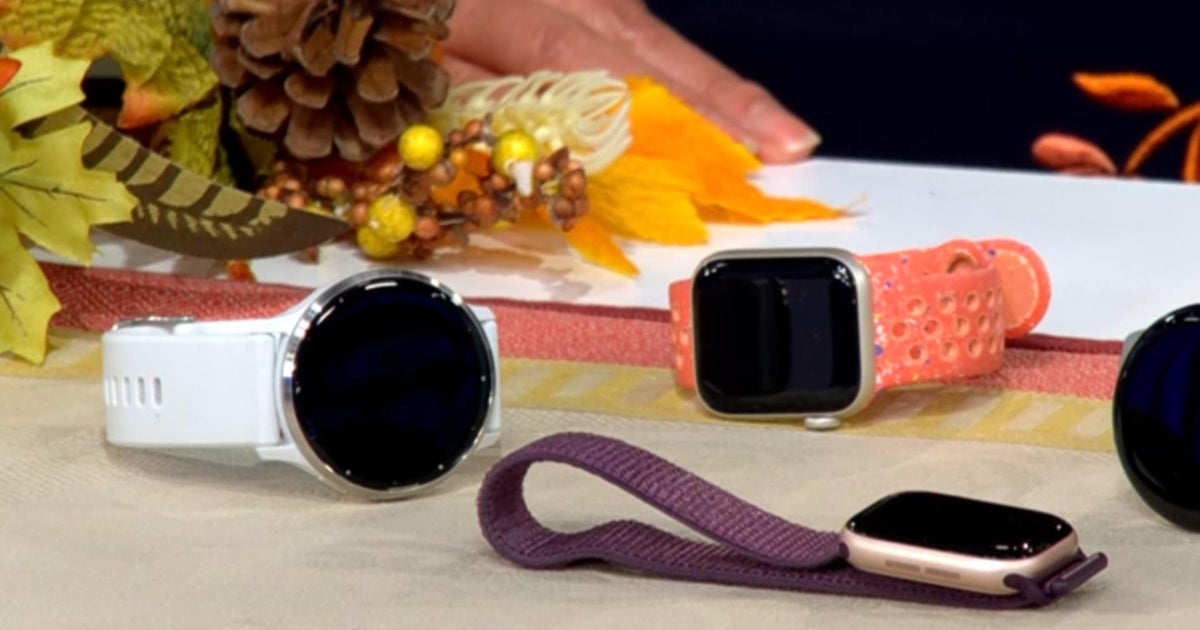CBS News
Snag a 4-pack of Apple AirTags for the lowest price we’ve seen at Walmart

Can’t stop losing your keys? Need to keep a closer eye on your wallet? A set of Apple AirTags might be the best purchase you could ever make for yourself. These Tile-like smart trackers (including lost luggage) are the best of the best, and if you have an iPhone, you owe it to yourself to pick a few up and attach them to the items you keep losing over and over.
These helpful devices don’t go on sale too often, and they usually sell out quickly when they do. So now that Walmart is offering a 4-pack for just $80, you should high-tail it on over to the retailer and stock up while you can. (Full disclosure: Some users have raised privacy concerns about this product. Here’s all you need to know.)
These tiny trackers send out a Bluetooth signal that can be anonymously detected by nearby devices. Even if your own phone isn’t handy, you (and only you) can locate these trackers on an Apple “Find My” map. If you do have your phone in-hand, it can lead you straight to your missing item. Easy-peasy.
You’ll get the best per-AirTag price when you buy a four-pack. But if you only need one, single Apple AirTags are available at Walmart as well.
Apple AirTags (4-Pack): $80 ($20 off)
Apple
The Apple AirTag is still the best smart tracker you can get. Specifically designed for Apple users, this compact tracker syncs with devices like your iPhone, iPad, and MacBook for quick, hassle-free setup. And despite its small size, it boasts impressive tracking capabilities.
Equipped with the U1 ultra-wideband chip, the AirTag can accurately locate all your lost items with Apple’s Find My network. Even when an item is turned off, like your iPhone, Find My can track it down. That same network can help find your lost keys or even your pet if you attach an AirTag to its collar.
You don’t need to routinely recharge AirTags either, as each unit’s battery lasts up a year per tracker. When the battery dies, just replace the CR2032 battery. Additionally, you’ll receive notifications if you unintentionally leave behind an AirTagged item or if your phone detects an unknown AirTag accompanying you, so you can take action if you need to.
The only limitation of the AirTag is its exclusive compatibility with Apple devices. If you use an Android device, you’ll have to rely on a different tracker. However, for iPhone users, you should definitely snag a few AirTags in your most-used belongings. There’s no real reason not to at this price.
Right now, you can get the 4-pack of Apple AirTags for just $80, which is $20 off their normal price of $100.
You can also get just one AirTag for just $24
Are AirTags safe for privacy?
Apple’s AirTags have raised concerns from some customers who say the devices are vulnerable to misuse by bad actors. You might want to consider the details before buying.
Because of the way AirTags leverage the “Find My” app on your iPhone, they effectively make every iPhone and iPad across the globe part of a massive network. What makes them accurate — so that you can pinpoint the location of your lost items — can also make them tools for stalkers and a potential privacy issue. Given their small size, it’s simple for someone to, say, drop an AirTag in someone’s purse and watch every move they make. Or they could hide an AirTag in a car and keep tabs on someone’s car.
This makes Apple’s trackers stand out from those from Tile or Chipolo products, which don’t continually broadcast their location. But those brands also are less accurate than AirTags – and their range of efficacy nowhere near as large.
While there are privacy-centric precautions in place, such as an alert that automatically notifies you if an AirTag that is not paired to one of your devices is found around you, it’s not foolproof. There are ways to get around some of the safeguards from Apple itself if you really want to — part of which has led to a class action lawsuit against the tech giant. Filed in 2023, it claims plaintiffs ended up suffering “substantial” injuries from abusers who used AirTags in ways Apple failed to safeguard against. A judge recently dismissed Apple’s request to quash the suit, so it’s ongoing.
In the end, buying and using AirTags is a decision you’ll have to weigh for yourself. If you feel safe and comfortable using them with Apple’s many security protections in place, they can make excellent trackers.
CBS News
Trump makes more Cabinet picks but some top economic posts remain unfilled

Watch CBS News
Be the first to know
Get browser notifications for breaking news, live events, and exclusive reporting.
CBS News
Open: This is “Face the Nation with Margaret Brennan,” Nov. 24, 2024

Watch CBS News
Be the first to know
Get browser notifications for breaking news, live events, and exclusive reporting.
CBS News
Popular gluten free tortilla strips recalled over possible contamination with wheat

A food company known for popular grocery store condiments has recalled a package of tortilla strips that may be contaminated with wheat, the U.S. Food and Drug Administration said Friday. The product is meant to be gluten-free.
Sugar Foods, a manufacturing and distribution corporation focused mainly on various toppings, artificial sweeteners and snacks, issued the recall for the “Santa Fe Style” version of tortilla strips sold by the brand Fresh Gourmet.
“People who have a wheat allergy or severe sensitivity to wheat run the risk of serious or life-threatening allergic reaction if they consume the product,” said Sugar Foods in an announcement posted by the FDA.
Packages of these tortilla strips with an expiration date as late as June 20, 2025, could contain undeclared wheat, meaning the allergen is not listed as an ingredient on the label. The Fresh Gourmet product is marketed as gluten-free.
Sugar Foods said a customer informed the company on Nov. 19 that packages of the tortilla strips actually contained crispy onions, another Fresh Gourmet product normally sold in a similar container. The brand’s crispy onion product does contain wheat, and that allergen is noted on the label.
U.S. Food and Drug Administration
No illnesses tied to the packaging mistake have been reported, according to the announcement from Sugar Foods. However, the company is still recalling the tortilla strips as a precaution. The contamination issue may have affected products distributed between Sept. 30 and Nov. 11 in 22 states: Arizona, California, Colorado, Florida, Georgia, Iowa, Idaho, Illinois, Indiana, Maryland, Maine, Michigan, Minnesota, North Carolina, New Jersey, Ohio, Oregon, Pennsylvania, Texas, Utah, Virginia and Washington.
Sugar Foods has advised anyone with questions about the recall to contact the company’s consumer care department by email or phone.
CBS News reached out to Sugar Foods for more information but did not receive an immediate reply.
This is the latest in a series of food product recalls affected because of contamination issues, although the others involved harmful bacteria. Some recent, high-profile incidents include an E. coli outbreak from organic carrots that killed at least one person in California, and a listeria outbreak that left an infant dead in California and nine people hospitalized across four different states, according to the Center for Disease Control and Prevention. The E. coli outbreak is linked to multiple different food brands while the listeria outbreak stemmed from a line of ready-to-eat meat and poultry products sold by Yu-Shang Foods.












